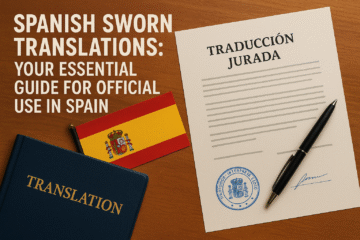When dealing with legal documents for international purposes, understanding the distinctions between ‘apostille’ and ‘notarization’ is not just crucial, but empowering. While both processes authenticate documents, they serve different functions and are used in other contexts. This understanding will not only help you navigate the process smoothly but also ensure your documents are legally valid for international use. This blog will delve into what apostille and notarization are, how they differ, and when you need each, empowering you with the knowledge you need.
What is Notarization?
Notarization is the process by which a notary public, a legally authorized individual, plays a crucial role in preventing fraud by verifying the authenticity of document signatures. They witness the signing of documents to ensure that the signers are who they claim to be and are signing the documents willingly and knowingly. While not confirming the content or legality of the document itself, this process provides a layer of security and protection.
What is an Apostille?
An apostille is an official certificate that authenticates the origin of a public document. It is used to verify the legitimacy of documents being sent from one country to another, specifically when the receiving country is a member of the Hague Convention. The apostille is attached to the document by the relevant authority, usually a government agency, and confirms that the document is valid for international use. For example, suppose you are submitting a birth certificate, marriage certificate, or academic transcript to a foreign government or institution. In that case, you may need an apostille to ensure the document is recognized as legitimate in that country. Unlike notarization, an apostille is not concerned with the signatures on the document but with the authenticity of the document itself.
Key Differences Between Apostille and Notarization
The key difference between notarization and apostille lies in their purposes. Notarization is concerned with verifying the identity of the person signing the document and ensuring that the signature is authentic. An apostille, on the other hand, is an international certification that ensures the document is legitimate and recognized by the government of a foreign country. While notarization is often used for domestic purposes, an apostille is specifically used when a document needs to be recognized abroad, particularly in countries that are part of the Hague Convention.
Another significant difference is the jurisdiction. Notarization is performed by a notary public, who can be found in most local communities. Apostille certification, however, is provided by an authorized government agency, such as a Secretary of State’s office, depending on the country. This process usually involves submitting the document to the appropriate authority, which will verify its legitimacy before issuing the apostille.
When Do You Need Notarization?
Notarization is commonly required for documents that will be used for legal or official purposes, particularly within the country where the notarization takes place. This process, which includes signing a contract, power of attorney, or affidavit, provides comfort and ease as it ensures the document is legally binding. In addition, many financial institutions, government agencies, and courts require notarized documents for various processes. Notarization is also essential when you must prove the authenticity of signatures but do not intend to use the document internationally.
When Do You Need an Apostille?
An apostille is necessary when you need to use a document in a foreign country that is a signatory of the Hague Convention. These countries recognize the apostille as a valid document authentication, allowing you to use the document without requiring further verification by the foreign government. Common documents that may require an apostille include birth certificates, marriage certificates, diplomas, and business documents that must be used for international purposes such as immigration applications, foreign adoptions, or international legal proceedings.
Suppose you send a document to a country that is not in the Hague Convention. In that case, you may need to go through additional authentication procedures, such as embassy or consulate legalization, which can be more involved and lengthy.
Conclusion
Both notarization and apostille are important in authenticating documents, but they are used for different purposes. Notarization verifies the signer’s identity and the signature’s authenticity, while an apostille authenticates the document for use in a foreign country. Understanding the differences between these two processes can help you determine which one is necessary for your specific situation. If you’re dealing with international documents, it’s crucial to know whether you need notarization or an apostille to ensure your documents are accepted in the relevant jurisdiction. At Anshinotary, we offer notary and apostille services, ensuring that your documents are authenticated properly for all legal and international purposes.
Also Read: The Difference Between Live Scan and Ink Fingerprinting





0 Comments